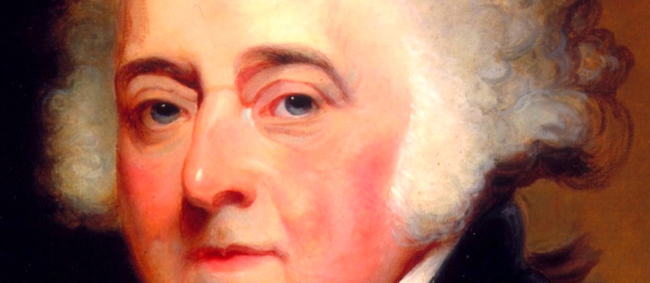

1787: "Suppose a nation, rich and poor, high and low, ten millions in number, all assembled together; not more than one or two millions will have lands, houses, or any personal property; if we take into the account the women and children, or even if we leave them out of the question, a great majority of every nation is wholly destitute of property, except a small quantity of clothes, and a few trifles of other movables.
Would Mr. Nedham be responsible that, if all were to be decided by a vote of the majority, the eight or nine millions who have no property, would not think of usurping over the rights of the one or two millions who have?
Property is surely a right of mankind as really as liberty. Perhaps, at first, prejudice, habit, shame or fear, principle or religion, would restrain the poor from attacking the rich, and the idle from usurping on the industrious; but the time would not be long before courage and enterprise would come, and pretexts be invented by degrees, to countenance the majority in dividing all the property among them, or at least, in sharing it equally with its present possessors.
Debts would be abolished first; taxes laid heavy on the rich, and not at all on the others; and at last a downright equal division of every thing be demanded, and voted. What would be the consequence of this? The idle, the vicious, the intemperate, would rush into the utmost extravagance of debauchery, sell and spend all their share, and then demand a new division of those who purchased from them. The moment the idea is admitted into society, that property is not as sacred as the laws of God, and that there is not a force of law and public justice to protect it, anarchy and tyranny commence. If "Thou shalt not covet," and "Thou shalt not steal," were not commandments of Heaven, they must be made inviolable precepts in every society, before it can be civilized or made free. - - On Property: John Adams, Defence of the Constitutions of Government of the United States
Posted by gerardvanderleun at September 20, 2013 9:37 AMAdams was, pretty much, writing from personal experience. In 1775 one of his clients was an habitual scofflaw, and he wrote in his diary how terrified he was with what they might be setting loose in the revolution.
Posted by: james wilson at September 20, 2013 10:43 AMI'd call him prescient, but clearly he was a student of history.
Posted by: pdwalker at September 20, 2013 10:45 AMAdams' views are consistent with why America had a "revolution." It was really a war of independence meant to preserve the progress that Americans had made. They were convinced that King George and Parliament meant to destroy American prosperity and freedom. As Adams also said elsewhere, the American "revolution" had occurred long before the clash of arms. It happened in the minds of American colonists over a century of evolution from the early settlements to a land of prosperous, dynamic individuals.
Posted by: Don Rodrigo at September 20, 2013 11:42 AMDoes that mean we need to wait until "it" next happens in the minds of space colonists as their early space settlements turn into a "land" of prosperous, dynamic individuals?
Cut to the chase:
"An armed society is a polite society. Manners are good when one may have to back up his acts with his life." ~ Heinlein
Posted by: chasmatic at September 21, 2013 10:56 AM
HOME